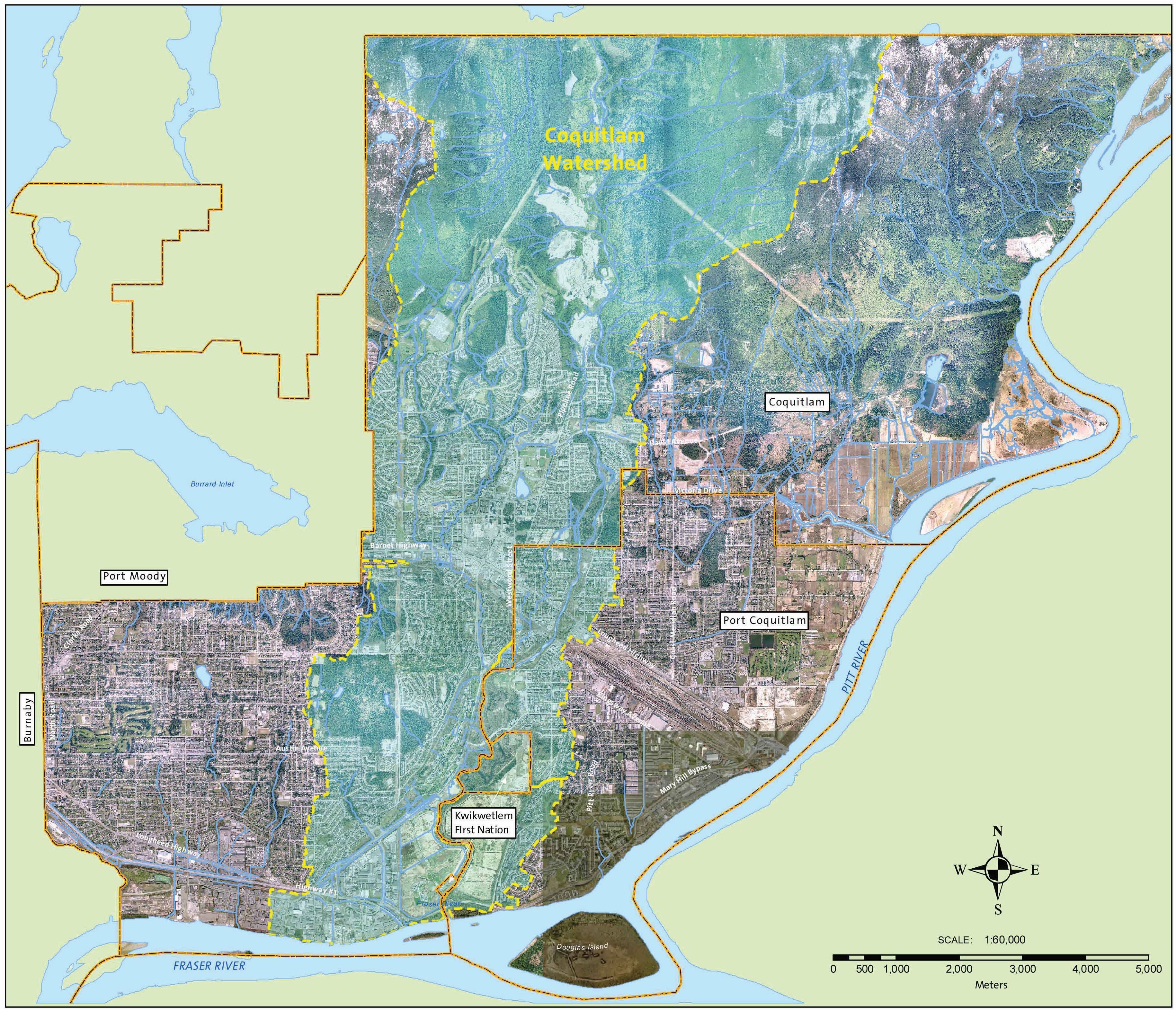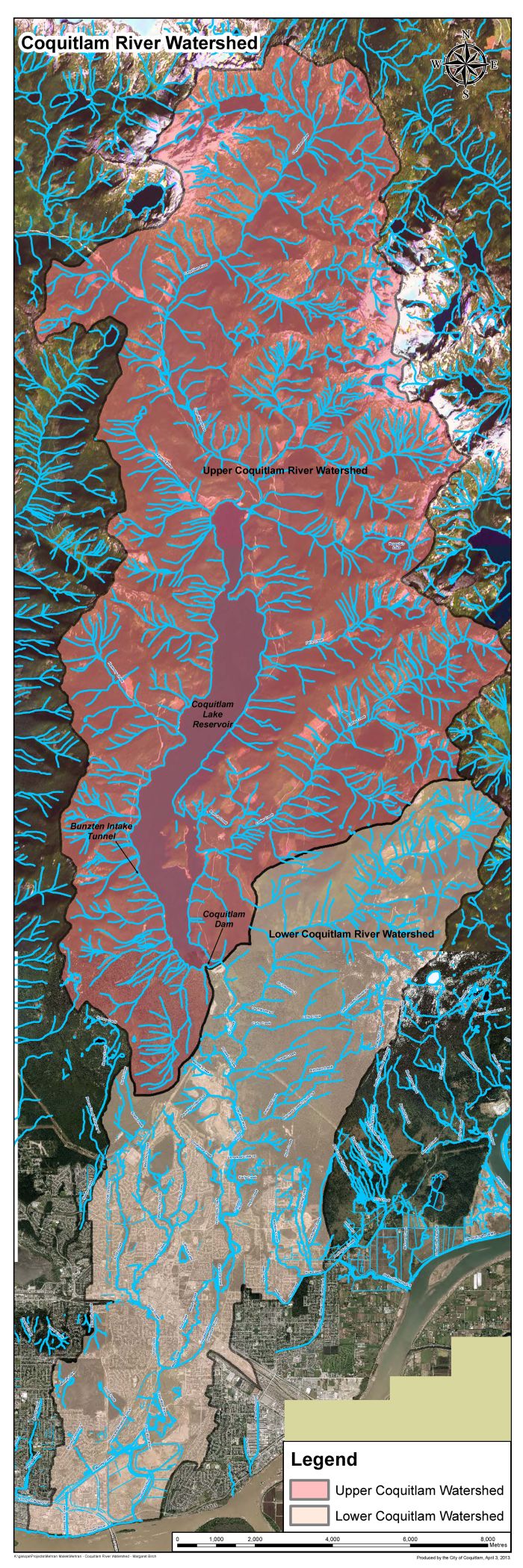Coquitlam River Watershed Roundtable: Overcoming Barriers to Watershed Plan Implementation
Coquitlam River Watershed Roundtable: Building Resilience and Capacity for Inter-Jurisdictional, Watershed-Based Approaches
The Coquitlam River Watershed Roundtable has made significant advancements under its collaborative model. One highlight is the development of a unique watershed plan that recognizes important linkages between ecosystem health and human well-being, and advances ecosystem-based thinking and planning across multiple jurisdictions of the Coquitlam River watershed.
The Roundtable has now turned its attention to building the capacity and resilience necessary to see the plan through implementation and beyond – focusing on evaluating sustainable funding mechanisms, increasing peer-to-peer knowledge sharing, and the Water Sustainability Act.
A 2016 Progress Update captures highlights of the strategies for action ahead.
A Commitment to Continual Improvement
As an important drinking water source providing over one third of the water to the Metro Vancouver region, and a significant source of hydropower, the pristine and protected upper Coquitlam River watershed is vastly different from the 264+ hectares of heavily developed lower watershed.
Over 156,000 people reside in the lower watershed, the area of focus for the Roundtable and its newly developed Lower Coquitlam River Watershed Plan to address key pressures that affect the health of the watershed.
Aligned by a common vision of a healthy watershed, the Roundtable began developing the watershed plan following an adaptive management model known as the Open Standards for the Practice of Conservation.
Healthy Ecosystems, Healthy People:
“Evolving from a climate of conflict to a state of collaboration was a huge success on its own,” noted Margaret Birch, “and the benefits of a common vision and the collaborative, consensus-based approach empowered the Roundtable to begin  developing a watershed plan only months after their formation in February 2011.”
developing a watershed plan only months after their formation in February 2011.”
“The watershed plan is multi-dimensional and it was intended to serve as a baseline and point the Roundtable in the right direction, while providing the structure needed to ensure continual improvement through an adaptive management framework”, states Birch.
“Integrating the important linkages between ecosystem health and human well-being into decision making is a critical step in planning for watershed health. The  foundations for this have been woven into the fabric of the watershed plan,” continued Craig Orr.
foundations for this have been woven into the fabric of the watershed plan,” continued Craig Orr.
“Proudly launched in 2015, this unique plan recognizes the linkages between healthy ecosystems and healthy people. Ensuring effective implementation is the next critical step,” Orr emphasizes.
Sustainable Funding Mechanisms Needed
To date, the majority of funds have focused on the technical aspects of watershed planning to ensure expert facilitation, and professional input and guidance for this science-based approach.
“As development of the watershed plan progressed, the challenge to achieve sustainable long-term funding to ensure effective implementation of the plan was identified as a significant pressure,” stressed Marni Turek.
“ Thanks to the REFBC, Watershed Watch Salmon Society and the Roundtable partners who contributed multi-year funding, the Roundtable is now poised to identify a strategy to increase capacity and resilience through evaluating sustainable funding mechanisms and building peer-to-peer knowledge sharing opportunities to expand the reach of this work.”
Thanks to the REFBC, Watershed Watch Salmon Society and the Roundtable partners who contributed multi-year funding, the Roundtable is now poised to identify a strategy to increase capacity and resilience through evaluating sustainable funding mechanisms and building peer-to-peer knowledge sharing opportunities to expand the reach of this work.”
“This is an exciting step for the Roundtable and the broader community of watershed based organizations and policy makers facing similar challenges.”
Response to Demonstrated Needs & Pressures:
“This work demonstrates an excellent fit to our freshwater sustainability focus area, with strong land use and built environment relevance associated with the urban setting of the Watershed,” stated Jack Wong.
 “It’s a timely, relevant project that responds to demonstrated needs and watershed pressures. It’s applying new models and approaches relevant to other urban watersheds – collaborative community based planning, long term funding mechanisms, and the legislative and regulatory framework of the Water Sustainability Act,” adds Wong.
“It’s a timely, relevant project that responds to demonstrated needs and watershed pressures. It’s applying new models and approaches relevant to other urban watersheds – collaborative community based planning, long term funding mechanisms, and the legislative and regulatory framework of the Water Sustainability Act,” adds Wong.
Peer-to-Peer Knowledge Sharing Integral
Recent research from the POLIS Water Project on Ecological Governance highlights the need for peer-to-peer knowledge sharing.
Inspired by the outcomes of this research, the Roundtable has made this an integral part of the work going forward.
The collaborative model of the Roundtable has proven to be effective and other regions in the province have been taking note, adopting similar structures to advance initiatives in their watersheds.
Implementation – Uncharted Territory:
The Roundtable’s planning process was also recently evaluated in the context of a Master’s thesis, providing an excellent third party evaluation.
“Planning for capacity is proving especially important as the Roundtable looks forward to implementation of its Lower Coquitlam River Watershed plan over the coming years,” concluded Marni Turek.
“The logistics of actually implementing watershed-wide initiatives spanning multiple jurisdictions make for uncharted territory in this watershed, however the Roundtable looks forward to taking on this new challenge and building the capacity needed to effectively do so.”





